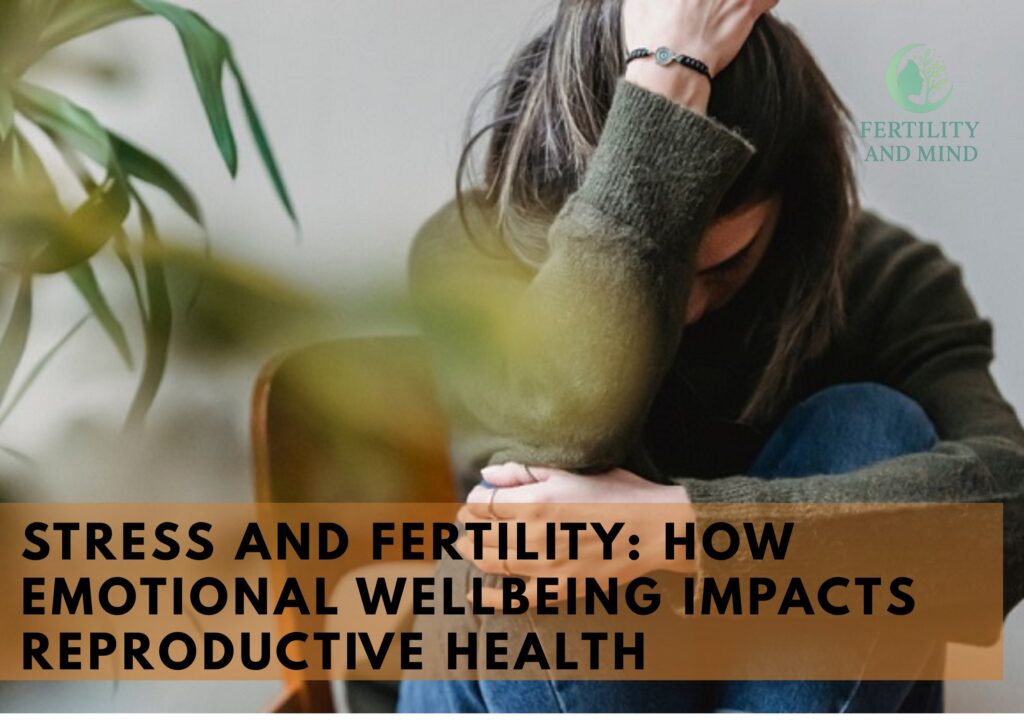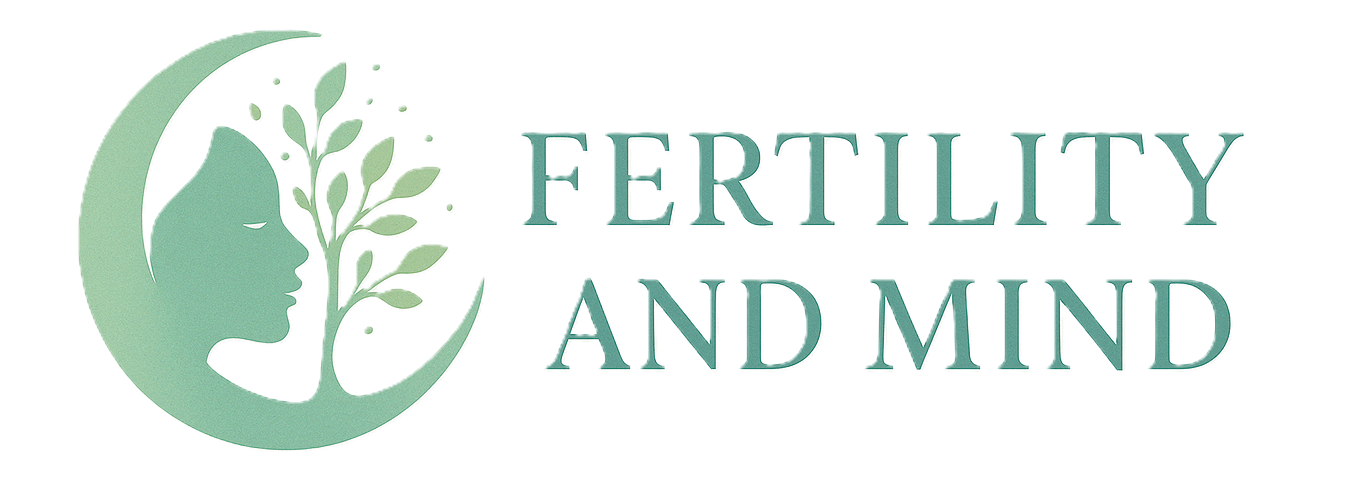
Stress is often seen as a normal part of modern life, but when it comes to fertility, its effects can be surprisingly powerful. Couples who are trying to conceive frequently ask: Can stress make it harder to get pregnant? Science, clinical experience, and personal stories all point to the same conclusion stress doesn’t just affect your mood, it also influences your reproductive health.
What Is the Connection Between Stress and Fertility?
Stress activates the body’s “fight or flight” response, releasing hormones such as cortisol and adrenaline. While useful in short bursts, chronic stress can interfere with reproductive hormones like prolactin, luteinizing hormone (LH), and follicle stimulating hormone (FSH). These hormones play a direct role in ovulation, sperm production, and sexual desire.
In my own understanding, stress doesn’t just “live in your head” it can throw off the delicate balance of hormones that make conception possible. That’s why long periods of stress often coincide with irregular cycles, lower libido, or difficulties in conception.
How Stress Affects Fertility in Women
- Ovulation and cycles: Chronic stress can disrupt ovulation, making cycles irregular or even stopping them completely.
- Hormonal imbalance: High levels of cortisol can reduce the efficiency of reproductive hormones, lowering the chances of conception.
- Lowered desire: Women under stress may also notice a drop in sexual desire, which naturally reduces the frequency of intercourse.
How Stress Affects Fertility in Men
- Sperm quality: Research shows that stress can lower sperm count, reduce motility, and even affect sperm shape.
- Performance issues: Stress and anxiety are strongly linked to erectile dysfunction and reduced sexual satisfaction.
- Lifestyle risks: From my own perspective, habits such as smoking, drinking alcohol, or poor sleep routines only add fuel to the fire, making stress even more damaging to fertility.
Lifestyle Factors That Link Stress and Fertility
The mind and body are deeply connected. When daily habits are out of balance, fertility suffers too.
- Diet: A nutrient-rich diet with whole grains, fish, fruits, and vegetables supports hormone health. On the other hand, junk food, alcohol, and smoking interfere with both male and female fertility.
- Sleep: Poor quality sleep increases stress and alters hormone production. I’ve seen how bad sleep habits make stress feel twice as heavy.
- Exercise: Physical activity is one of the best natural stress relievers. Regular exercise helps regulate hormones and improves reproductive health.
- Stimulants and isolation: Too much caffeine, or withdrawing socially when stressed, both make fertility challenges harder. Staying socially connected and reducing stimulants can make a big difference.
Can Stress Cause Infertility? What Science Says
Studies suggest that stress alone is unlikely to be the sole cause of infertility, but it can strongly contribute to it. Chronic stress may reduce the chances of conception per cycle, especially when combined with other factors such as poor lifestyle habits or existing reproductive issues.
The key is differentiating between short term stress, which the body can usually handle, and long term stress, which keeps hormone levels imbalanced and impacts fertility more seriously.
How to Reduce Stress When Trying to Conceive
The good news: stress can be managed. And small daily choices often have the biggest impact.
- Exercise: Even a daily walk helps regulate hormones and clear the mind.
- Balanced diet: Personally, I believe including more grains and fish while reducing alcohol, caffeine, and processed foods can make a real difference.
- Sleep hygiene: Good sleep is as important as good nutrition. Creating a relaxing bedtime routine helps regulate stress.
- Mindfulness & therapy: Techniques like yoga, meditation, or cognitive behavioral therapy reduce stress while boosting emotional resilience.
- Stay connected: Avoid isolation. Talking with a partner, friends, or support group makes stress easier to manage.
Stress Management During Fertility Treatments
For couples undergoing treatments such as IVF, stress can feel overwhelming. Emotional ups and downs are part of the process, but they don’t have to dominate it.
- Coping strategies: Breathing techniques, journaling, or guided meditation during treatments can improve mental health.
- Support systems: Couples who share their feelings and support each other often experience less stress during the process.
- Professional help: Fertility counselors or therapists specialized in reproductive health can help couples navigate this journey.
FAQs About Stress and Fertility
Does stress really prevent pregnancy?
Not directly, but chronic stress disrupts reproductive hormones and lowers the chances of conception.
Which hormones are most affected?
Cortisol, prolactin, LH, and FSH are the key hormones impacted by stress.
How can couples manage stress together?
By communicating openly, exercising, eating well, and finding joint relaxation routines.
When should you seek professional help?
If stress feels unmanageable or fertility struggles last more than a year, it’s time to consult a doctor or fertility specialist.
Conclusion: Taking Care of Mind and Body for Fertility
Stress and fertility are deeply connected not just emotionally but biologically. Chronic stress can interfere with ovulation, sperm quality, and intimacy, while healthy habits like balanced nutrition, exercise, sleep, and emotional support can tip the balance back in your favor.
In my view, managing stress isn’t just about improving fertility; it’s about creating a healthier, happier life overall. By taking care of both mind and body, you give yourself the best chance to conceive and enjoy the journey along the way.
{ “@context”: “https://schema.org”, “@type”: “Article”, “headline”: “Stress and Fertility: How Stress Affects Hormones, Intimacy, and Conception”, “description”: “Discover how stress impacts fertility in men and women, hormones, and conception—and learn practical tips to reduce stress while trying to conceive.”, “author”: { “@type”: “Person”, “name”: “Your Name” }, “publisher”: { “@type”: “Organization”, “name”: “Your Blog/Website”, “logo”: { “@type”: “ImageObject”, “url”: “https://yourwebsite.com/logo.png” } }, “datePublished”: “2025-08-25”, “mainEntityOfPage”: { “@type”: “WebPage”, “@id”: “https://yourwebsite.com/stress-and-fertility-hormones-conception” }, “faq”: [ { “@type”: “Question”, “name”: “Does stress really prevent pregnancy?”, “acceptedAnswer”: { “@type”: “Answer”, “text”: “Not directly, but chronic stress disrupts reproductive hormones and lowers the chances of conception.” } }, { “@type”: “Question”, “name”: “Which hormones are most affected by stress?”, “acceptedAnswer”: { “@type”: “Answer”, “text”: “Cortisol, prolactin, LH, and FSH are the main hormones impacted by chronic stress.” } }, { “@type”: “Question”, “name”: “Can stress affect male fertility?”, “acceptedAnswer”: { “@type”: “Answer”, “text”: “Yes, stress can reduce sperm count, motility, and even affect libido and sexual performance.” } }, { “@type”: “Question”, “name”: “How can couples reduce stress while trying to conceive?”, “acceptedAnswer”: { “@type”: “Answer”, “text”: “Through exercise, balanced diet, good sleep, mindfulness, therapy, and staying socially connected.” } } ] }
